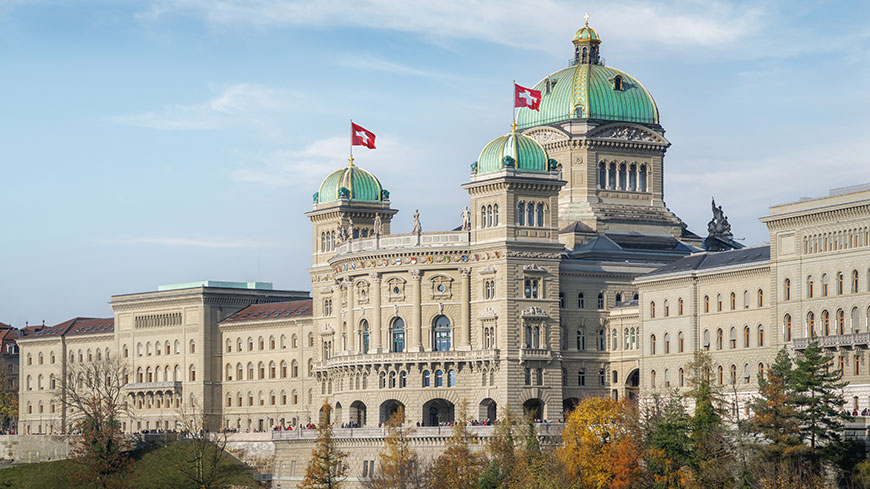In a report published today, the Council of Europe’s Group of Experts on Action against Trafficking in Human Beings (GRETA) calls on Switzerland to take more measures against trafficking, particularly by improving victim identification and access to compensation, combating trafficking for the purpose of labour exploitation and providing specialised assistance to children and asylum seekers who fall victim to trafficking.
GRETA welcomes the progress made since the publication in 2019 of its second evaluation report on Switzerland as regards the implementation of the Council of Europe Convention on Action against Trafficking in Human Beings. For example, the authorities adopted the third National Action Plan against Trafficking in Human Beings, which will be subject to regular monitoring and an independent evaluation. Roundtables responsible for the co-ordination of anti-trafficking action were also established in three additional cantons.
Although the relevant legal framework is in place, few victims of trafficking have been awarded compensation. GRETA therefore asks the authorities to facilitate and guarantee effective access to compensation, in particular by ensuring that evidence of the harm suffered by the victim is collected as part of the criminal investigation. Victims who ask to be compensated by offenders for unpaid wages should be able to obtain a decision on this as part of the criminal trial.
While welcoming the fact that there are lawyers who specialise in assisting victims of trafficking, GRETA is concerned that requests for free legal aid are approved at a later stage in proceedings. Switzerland should guarantee access to legal assistance as soon as there are reasonable grounds for believing that a person is a victim of human trafficking and ensure that victims have access to free legal aid from a specialised lawyer in all relevant legal proceedings, including civil proceedings.
GRETA also welcomes the existence of specialised police units and prosecutors in some cantons, and the establishment of the exchange platform on human trafficking for prosecutors. However, the low number of prosecutions and convictions and, in some cases, the excessive length of criminal proceedings are still a source of concern. GRETA calls on the authorities to take measures to remedy this. It also recommends that guidelines on the application of the non-punishment principle be transposed into directives throughout the country and that prosecutors and the police be given training on this.
The report also calls for an increase in the capacity of labour inspectors to detect victims of trafficking. To combat trafficking for the purpose of labour exploitation, it is necessary for example to adopt specific guidelines on investigations into this form of trafficking but also to strengthen monitoring of domestic work and agriculture and co-operation with specialised NGOs and trade unions.
While welcoming the more efficient detection of victims of trafficking among asylum seekers, GRETA asks the Swiss authorities to ensure that a harmonised victim identification procedure is put in place in all cantons and that specialised organisations are involved in the procedure for the identification of victims of trafficking during the asylum process.
All victims, including asylum seekers and persons exploited abroad but identified in Switzerland, must benefit from specialised assistance measures and sufficient funding must be provided for NGOs providing assistance to victims of trafficking.
The report also urges the Swiss authorities to set up a formalised procedure for the identification of child victims of trafficking in all cantons, and to ensure that child victims throughout the country benefit from assistance measures.
Lastly, GRETA calls on the authorities to strengthen their efforts to ensure that all presumed foreign victims of trafficking are offered a recovery and reflection period. They should also benefit in practice from the right to obtain a renewable residence permit for the purpose of co-operating with the authorities or on humanitarian grounds.
According to the report, Switzerland is still predominantly a country of destination for victims of trafficking. Between 2019 and 2023, the police identified 295 victims, most of whom were women and around 8% of whom were children. The number of victims identified during the asylum procedure grew considerably. Sexual exploitation is still the main form of exploitation, affecting mainly women and girls, although trafficking for the purpose of forced criminality (including forced begging) and labour exploitation are also on the rise.
The Group of Experts on Action against Trafficking in Human Beings (GRETA) is an independent body which monitors the way countries implement the Council of Europe Convention on Action against Trafficking in Human Beings. All 46 member states of the Council of Europe are bound by the Convention, as well as non-member states Belarus and Israel.




